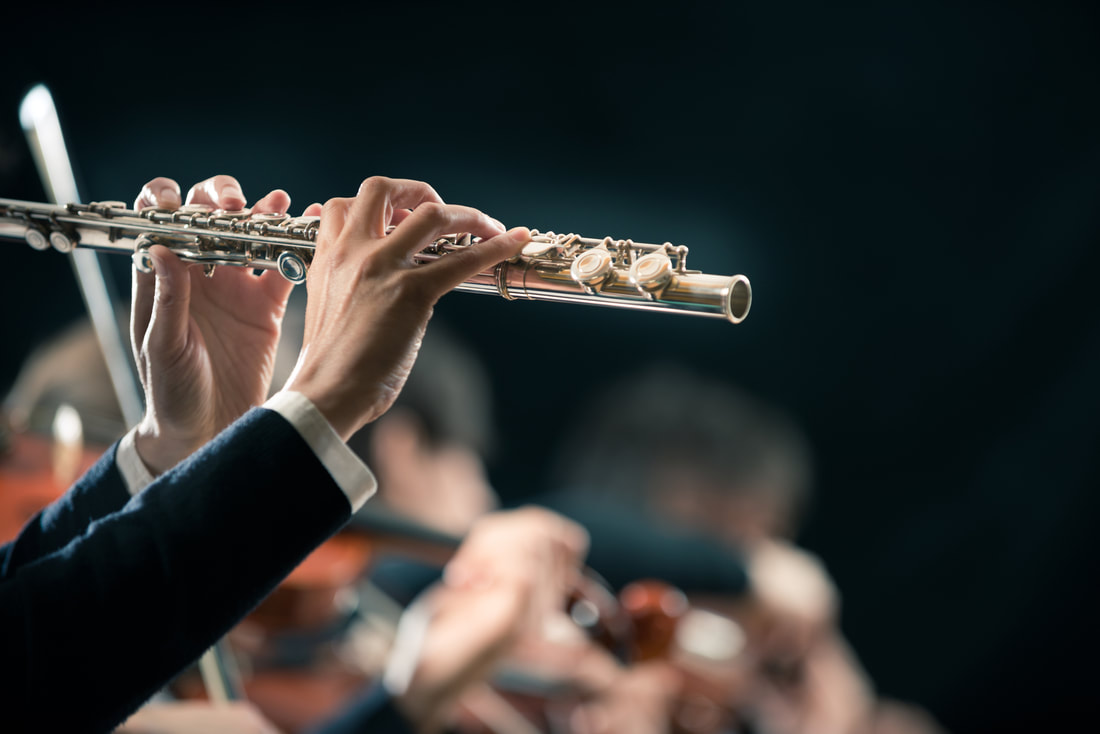|
We get asked a lot of questions, from how to listen at a concert to how we met and if Deb’s crystal flute is really 200 years old (yes, it is... 206 to be exact!). We love answering inquiries, because it shows you’re engaged and curious—so, thank you! In this article, we answer questions from listeners and music presenters on the creative, collaborative process of programming our concerts. Read on to find out if we’ve answered yours.
Question: How do you create your concert programs? Where do you find the inspiration? Debra Silvert: Every concert starts somewhere. As the initial contact, I talk with the presenter to find out what their audience is like and what their programming typically is. This is important for us to understand because we want to program something their audience will want to come to. For example, we just performed a concert for a local series with five concerts each year. Only one is traditionally classical—so we worked with the presenter to build a thematic program for Valentine’s Day that showcased romantic music for flute and guitar. This really got our creativity flowing. Kent Holliday’s Four Romantic Songs was a natural choice, and we also wanted to feature a gorgeous transcription of Franz Schubert’s Sonata in A minor, D. 821, “Arpeggione.” It fit the theme as a piece from the Romantic period. Paul Bowman: I saw in my mind an image of a gentleman in a red shirt and dark hat, with a rose in his teeth, dancing the tango with a special senorita. Astor Piazzolla wrote the fantastic Histoire du Tango, which is a standard of the flute-guitar repertoire. We chose one movement, Café 1930, because it’s an older version of the tango form—lovely and slow and melancholy. And with these pieces and a few others, the program came together collaboratively. Question: Is there a concert program you’ve never done—but really would like to? DS: Yes! We’ve been programming for our Project Listen Up! initiative, which is about bringing our “wickedly great works” as we call them into nontraditional venues. So, we’ve had this idea to bring a concert program into a funeral home, which is not a typical setting for a concert! We’d call it “Music by Dead White Guys” and it would include selections by some of the giants of classical music—and the idea would be twofold, to bring music to a nontraditional venue but also to sort of lift the stigma around death with a vibrant performance in a usually solemn setting. We’re not sure if it’s a terrific or a horrible idea, but we are sure it’s an original one. PB: We’d include Maurice Ravel’s Pavane for a Dead Princess and CPE Bach’s Hamburg Sonata and are still working out the rest of the program. Gluck’s Dance of the Blessed Spirits would seem a good fit. Debra has been in touch with a few funeral homes, so this might actually come to be. Question: Are there any “rules of thumb” you follow when creating a program? DS: Yes! My husband always says, “you have to end with a hummer.” He means that we want to send the audience out of the hall with an earworm, something they’ll sing all the way home. It’s such an upbeat, feel-good way to finish. PB: We think a lot about the order of the program, and whether there is an intermission or not. If we’re doing something that might be a bit more “out there” for an audience, we’ll program it in the middle of the first half or just after intermission. Question: Do you ever have creative differences you need to work out? DS: I really enjoy finding new pieces and commissioning works, but I also really love some of our “oldies but goodies” in the repertoire. I definitely tend toward finding themes or hooks that appeal to an audience, and Paul has helped me to become more adventurous. We balance each other well. PB: I have an abiding love for some of the more “contemporary” styles of classical music; this comes from my time at the University of California, San Diego and from my love of the challenge of performing it well. This music can be more challenging for audiences to enjoy, so sometimes Debra and I have a little dance of push-and-pull as we’re programming. Ultimately, we’re both aligned in creating a concert experience that will take listeners on a journey with us. Have a question for us on the creative process of programming concerts? We’d love to hear it!
0 Comments
|
AuthorWrite something about yourself. No need to be fancy, just an overview. Archives
March 2022
Categories |


 RSS Feed
RSS Feed





